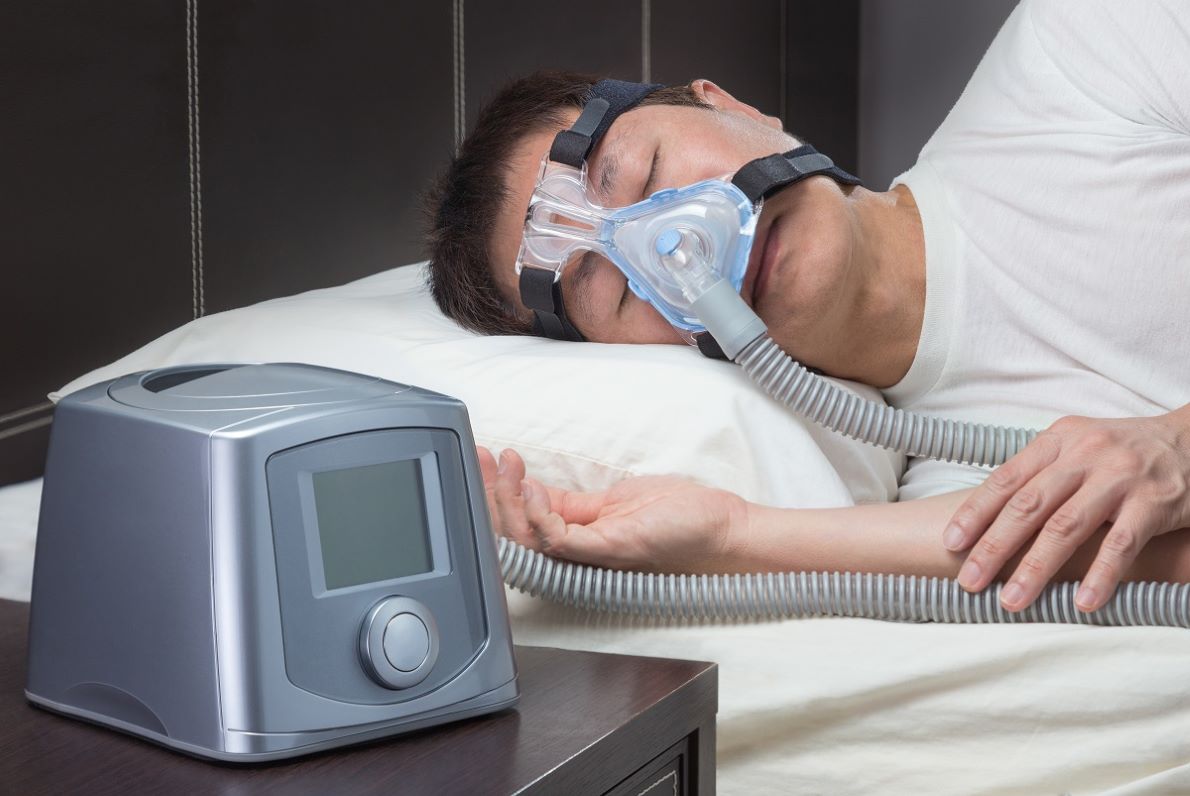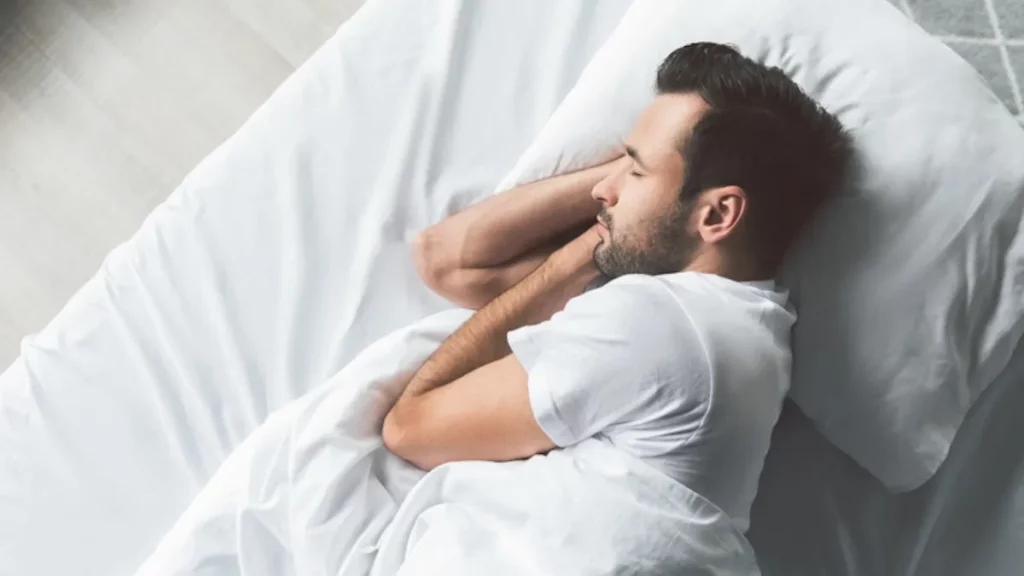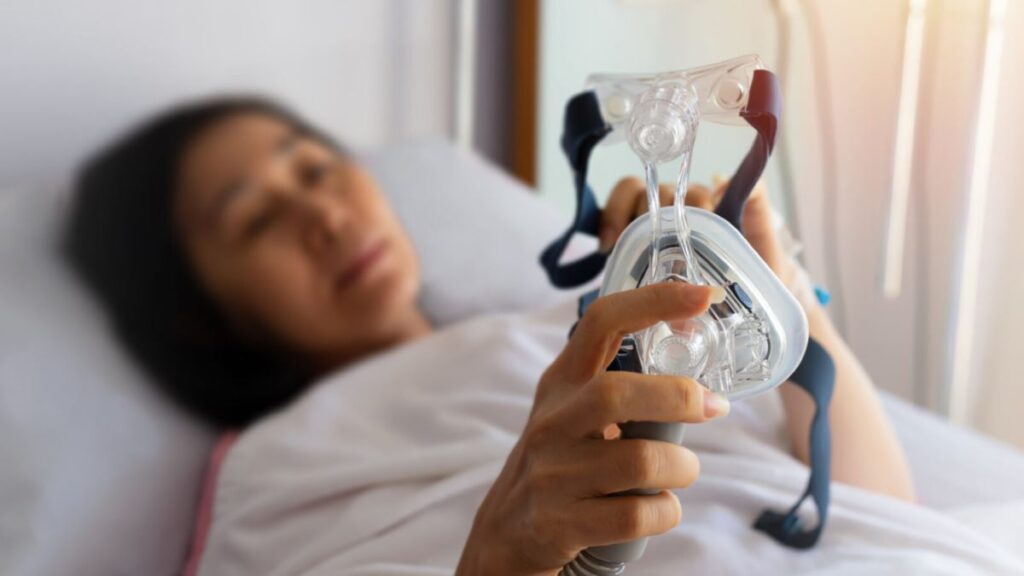Melbourne Sleep Study Cost: What You Should Expect to Pay

Melbourne Sleep Study Cost: What You Should Expect to Pay
Sleep studies are essential for diagnosing sleep disorders that affect millions of Australians, with obstructive sleep apnea being one of the most common conditions requiring professional evaluation. These tests monitor your breathing patterns, heart rate, and oxygen levels while you sleep, providing healthcare professionals with crucial information to identify disrupted sleep patterns and their underlying causes.
When you’re experiencing symptoms like loud snoring, excessive daytime fatigue, or waking up breathless during the night, understanding the Melbourne Sleep Study Cost becomes important. The financial investment in a proper sleep apnea diagnosis can vary significantly depending on the type of study you need and your insurance coverage.
In Melbourne, there are different testing options available such as convenient home-based studies and comprehensive hospital-based polysomnography. Each method has its own price range and level of monitoring detail.
This detailed guide on sleep studies will help you understand:
- The different types of sleep studies offered in Melbourne
- A breakdown of costs for both home and hospital-based testing
- Coverage options through Medicare and private health insurance
- Symptoms that indicate the need for a sleep study
- Possible treatment pathways after diagnosis
- Waiting times and prioritisation processes
With this knowledge, you’ll be better equipped to make informed decisions about your sleep health while also understanding the financial commitments involved in seeking proper diagnosis and treatment.
What Types of Sleep Studies Are Available in Melbourne?
Melbourne residents have access to two primary types of sleep studies, each designed to meet different diagnostic needs and patient preferences.
Home Sleep Study Melbourne Options
Home-based sleep studies represent the most accessible diagnostic approach for suspected sleep apnea. These studies utilise portable monitoring devices that you wear whilst sleeping in your own bed. The non-invasive nature of home sleep studies makes them particularly appealing to patients who prefer familiar surroundings during testing.
Air Liquide Healthcare facilitates Australia’s largest network of home sleep apnea studies, providing comprehensive monitoring of:
- Heart rate patterns
- Respiratory airflow
- Oxygen saturation levels
- Body positioning during sleep
- Chest and abdominal movement
Hospital-Based Polysomnography
Hospital-based overnight polysomnography takes place in specialised sleep units at facilities like Epworth hospitals. This comprehensive testing method requires an overnight stay in a controlled clinical environment where trained technicians monitor your sleep patterns throughout the night.
Hospital studies capture extensive physiological data including brain wave activity, eye movements, muscle tension, and detailed respiratory measurements. The controlled environment allows for immediate intervention if complications arise during testing.
Key Differences in Monitoring Scope
Home studies focus primarily on respiratory parameters and oxygen levels, making them ideal for diagnosing obstructive sleep apnea. Hospital-based polysomnography provides broader neurological monitoring, enabling diagnosis of complex sleep disorders beyond sleep apnea, including periodic limb movement disorder and various parasomnias.
How Much Does a Home Sleep Study Cost in Melbourne?
Home sleep study cost Melbourne typically ranges from $150 to $265 for out-of-pocket expenses, making this diagnostic option significantly more affordable than hospital-based alternatives. The portable monitoring devices price reflects the streamlined nature of these tests, which you can complete in the comfort of your own home.
Your home sleep study package includes comprehensive monitoring of essential sleep parameters:
- Heart rate monitoring throughout the night
- Respiratory pattern analysis to detect breathing irregularities
- Blood oxygen level tracking (oxygen saturation)
- Airflow measurement through nasal sensors
- Chest and abdominal movement recording
The cost-effectiveness of home studies extends beyond the initial price point. You’ll benefit from quicker results turnaround, typically receiving your diagnostic report within 1-2 weeks compared to longer waiting periods for hospital-based studies. The convenience factor eliminates travel costs, accommodation expenses, and time away from work that hospital studies often require.
Air Liquide Healthcare, Australia’s largest facilitator of home sleep apnoea studies, provides these comprehensive diagnostic packages through their extensive network. The portable monitoring devices capture the same critical data points that sleep physicians need to diagnose obstructive sleep apnoea, ensuring diagnostic accuracy whilst maintaining affordability.
The streamlined process means you’ll avoid the additional costs associated with overnight hospital stays, nursing supervision, and complex laboratory equipment that drive up traditional polysomnography expenses.
What Are the Costs Associated with Hospital-Based Sleep Studies?
Hospital-based polysomnography represents the gold standard for sleep disorder diagnosis, with hospital sleep study cost Melbourne facilities typically charging between $800 to $2,500 for comprehensive overnight testing. These studies require an overnight stay at specialised sleep centres, where trained technicians monitor multiple physiological parameters simultaneously.
The polysomnography price reflects the extensive resources involved in hospital-based testing:
- Dedicated sleep laboratory facilities with controlled environments
- Qualified sleep technicians providing overnight supervision
- Advanced monitoring equipment tracking brain waves, eye movements, muscle activity, and respiratory patterns
- Comprehensive data analysis by sleep specialists
Insurance coverage for sleep studies plays a crucial role in making hospital-based testing accessible. Private health insurance typically covers the majority of costs, though you may encounter:
- Excess payments ranging from $250 to $500
- Co-payment requirements depending on your policy level
- Gap fees if specialists charge above insurance rebates
Hospital-based studies require a GP or specialist referral, ensuring medical necessity before proceeding with expensive testing. This referral process helps justify the higher costs to insurance providers and ensures appropriate patient selection for comprehensive monitoring.
The investment in hospital-based polysomnography provides detailed diagnostic information that home studies cannot match, particularly for complex sleep disorders requiring precise measurement of sleep architecture and neurological activity.
Does Medicare or Private Health Insurance Cover Sleep Study Costs?
Medicare coverage for sleep studies operates under specific Medical Benefits Schedule (MBS) guidelines that determine eligibility for rebates. You can receive Medicare rebates for diagnostic sleep studies when they meet established clinical criteria and are ordered by a qualified medical practitioner. The coverage typically applies to both home-based and hospital-based sleep studies, though the rebate amounts vary depending on the type of test performed.
Private health insurance CPAP therapy coverage depends heavily on your specific policy and level of cover. Many private health insurers include sleep disorder treatments under their extras or ancillary services packages. You’ll find that some policies cover:
- CPAP machine rental or purchase
- Mask replacements and accessories
- Sleep specialist consultations
- Follow-up therapy sessions
The extent of coverage varies significantly between insurers and policy tiers. Some providers offer comprehensive sleep disorder packages that include both diagnostic testing and ongoing treatment costs, while others may only cover specific components.
Verifying your individual policy details becomes crucial before proceeding with any sleep study. You should contact your health insurer directly to understand your specific entitlements, waiting periods, and any excess payments required. Many patients discover that combining Medicare rebates with private health insurance benefits can substantially reduce their out-of-pocket expenses for both diagnosis and ongoing treatment of sleep disorders.

What Symptoms Indicate the Need for a Sleep Study?
Recognising the symptoms needing sleep study evaluation can be the first step towards addressing potentially serious sleep disorders. Your body provides clear warning signs when sleep-related breathing issues require professional assessment.
Primary symptoms that warrant investigation include:
- Loud snoring evaluation becomes necessary when snoring disrupts household sleep or occurs nightly
- Excessive daytime tiredness that persists despite adequate sleep hours
- Waking up breathless, gasping, or choking during the night
- Frequent morning headaches that seem unexplained
- Difficulty concentrating or memory problems during the day
- Irritability or mood changes that affect daily functioning
The connection between these symptoms and underlying health risks extends beyond sleep quality. Daytime tiredness causes often link to obstructive sleep apnoea, which creates a cascade of health complications. Patients experiencing these symptoms frequently present with elevated blood pressure, as repeated breathing interruptions strain the cardiovascular system throughout the night.
Obesity compounds these risks significantly, creating a cycle where excess weight contributes to airway obstruction, whilst poor sleep quality affects metabolism and weight management. You might notice that partners or family members observe your breathing stopping during sleep, which represents one of the most telling indicators requiring immediate professional evaluation.
Sleep physicians recognise these symptom patterns as red flags for sleep-disordered breathing, making early assessment crucial for preventing long-term health consequences.
What Treatment Options Follow a Sleep Study Diagnosis?
Once your sleep study confirms obstructive sleep apnea (OSA), specialists in Melbourne will recommend treatment based on the severity of your condition. The diagnostic results determine which pathway offers the most effective management for your specific case.
Treatment for Mild to Moderate Sleep Apnea
Mandibular advancement splints serve as the primary treatment for mild to moderate sleep apnea. These custom-fitted oral devices gently reposition your jaw during sleep, keeping your airway open. You’ll work with a qualified dentist who specialises in sleep medicine to ensure proper fitting and comfort. The devices require regular adjustments and monitoring to maintain effectiveness.
Treatment for Moderate to Severe Sleep Apnea
CPAP therapy initiation becomes necessary for moderate to severe cases of obstructive sleep apnea. CPAP machines deliver continuous positive airway pressure through a mask, preventing airway collapse during sleep. The initial setup includes mask fitting, pressure calibration, and comprehensive training on equipment use and maintenance. Visit https://www.aph.gov.au/Parliamentary_Business/Committees/House/Former_Committees/Health_Aged_Care_and_Sport/SleepHealthAwareness/Report/section?id=committees%2Freportrep%2F024220%2F26956 to get more about diagnosis, management and treatment of sleep disorders.
Air Liquide Healthcare’s Integrative Approach
Air Liquide Healthcare’s integrative approach connects diagnosis with ongoing treatment management. Their CPAP therapy initiation programme includes:
- Comprehensive equipment training and setup
- Regular therapy monitoring and adjustments
- Ongoing support through qualified sleep technicians
- Equipment maintenance and replacement services
This end-to-end solution ensures you receive consistent care from diagnosis through long-term management. Regular check-ups monitor your progress and adjust treatment parameters as needed. The comprehensive approach addresses both the immediate treatment requirements and the ongoing lifestyle adjustments necessary for successful sleep apnea management.
How Long Do Patients Typically Wait for Sleep Studies in Melbourne?
Sleep study waiting times Melbourne vary significantly depending on the type of assessment you choose and the urgency of your condition. Home-based sleep studies typically offer the shortest wait times, with most patients receiving their testing equipment within 1-2 weeks of their initial consultation. This rapid turnaround makes home studies particularly attractive for patients experiencing disruptive symptoms who need answers quickly.
Hospital-Based Polysomnography Studies
Hospital-based polysomnography studies generally require longer waiting periods due to limited overnight facility capacity and the comprehensive nature of these assessments. You might wait several weeks to a few months for a hospital-based appointment, particularly at specialised units like Epworth hospitals where demand consistently exceeds availability.
Urgent Case Prioritisation
Urgent case prioritisation protocols ensure patients with severe symptoms receive expedited care. Healthcare providers assess your symptom severity, existing health conditions, and risk factors to determine priority levels. If you’re experiencing:
- Severe daytime fatigue affecting work or driving safety
- Frequent breathing interruptions witnessed by partners
- Cardiovascular complications potentially linked to sleep apnoea
Your case may qualify for urgent processing, reducing wait times to days rather than weeks.
Streamlined Referral Process
Air Liquide Healthcare’s extensive network through brands like SNORE Australia and Healthy Sleep Solutions helps streamline the referral process, often providing faster access to home-based studies. Their integrated approach means you can move from diagnosis to treatment initiation more efficiently than traditional pathways that require multiple separate appointments across different providers.
Why Is Early Detection Through Sleep Studies Important?
The benefits of early diagnosis of sleep disorders extend far beyond simply getting a better night’s rest. When you identify and treat obstructive sleep apnoea promptly, you’re actively protecting your long-term health and wellbeing.
Preventing Serious Health Complications
Complications from untreated OSA can be severe and life-threatening. Your cardiovascular system bears the brunt of untreated sleep apnoea, with increased risks of:
- High blood pressure and hypertension
- Heart disease and irregular heart rhythms
- Stroke and heart attack
- Type 2 diabetes development
The repeated oxygen drops during sleep episodes force your heart to work harder throughout the night, creating sustained stress on your cardiovascular system.
Quality of Life Improvements
Early intervention through sleep studies transforms your daily experience. You’ll notice improvements in:
- Daytime alertness and cognitive function
- Mood stability and reduced irritability
- Work performance and concentration levels
- Relationship quality through better sleep for partners
Long-Term Financial Benefits
Investing in early diagnosis saves you money over time. Untreated sleep disorders lead to:
- Increased medical appointments and specialist consultations
- Higher medication costs for related conditions
- Potential workplace accidents or reduced productivity
- Emergency hospital visits for cardiovascular complications
Air Liquide Healthcare’s integrative approach ensures you receive comprehensive care from diagnosis through ongoing treatment management, maximising the effectiveness of early intervention strategies.

Conclusion
Understanding Melbourne sleep study cost options empowers you to make informed decisions about your sleep health. You have two primary pathways: home-based studies ranging from $150 to $265, or comprehensive hospital-based polysomnography with potential insurance coverage.
Don’t let cost concerns delay your diagnosis. If you’re experiencing loud snoring, excessive daytime fatigue, or waking breathless at night, speak with your GP about the most suitable testing option. They can guide you towards the right diagnostic pathway based on your symptoms and circumstances.
Financial support is available through Medicare for qualifying diagnostic tests and private health insurance may cover CPAP therapy under specific packages. Verify your individual policy details to understand your coverage options.
Choosing the right sleep study option depends on your specific needs, symptoms severity, and financial situation. Whether you opt for convenient home testing or comprehensive hospital monitoring, early detection remains crucial for preventing serious health complications and improving your quality of life.
Take action today—your sleep health deserves attention, and affordable diagnostic options are within reach in Melbourne.
More to Read : Sleep Study Melbourne: What It Is and How to Book
FAQs About Sleep Study Costs and Options in Melbourne
A sleep study monitors your breathing, heart rate, and oxygen levels during sleep to diagnose disorders like obstructive sleep apnea and improve overall sleep health.
2. What types of sleep studies are available in Melbourne?
Melbourne offers home-based sleep studies for convenience and hospital-based polysomnography for comprehensive monitoring of complex sleep disorders.
3. How much does a home sleep study cost in Melbourne?
Home sleep studies generally cost between $150 and $265, covering essential monitoring of heart rate, breathing patterns, and oxygen levels.
4. How much do hospital-based sleep studies cost?
Hospital polysomnography can range from $800 to $2,500 due to overnight monitoring, advanced equipment, and specialist supervision.
5. Does Medicare or private health insurance cover sleep study costs?
Medicare offers rebates for eligible diagnostic studies, and private health insurance may cover CPAP therapy, specialist consultations, and follow-up sessions depending on your policy.
6. What symptoms indicate the need for a sleep study?
Key symptoms include loud snoring, daytime fatigue, waking up breathless, morning headaches, concentration issues, and irritability.
7. What treatment options are available after a sleep study?
Treatments range from mandibular advancement splints for mild cases to CPAP or BiPAP therapy for moderate to severe obstructive sleep apnea, alongside ongoing support and monitoring.
8. How long is the typical wait for a sleep study in Melbourne?
Home-based studies usually have a 1-2 week wait, while hospital-based polysomnography can take several weeks to months, with urgent cases prioritised.
9. Why is early detection through sleep studies important?
Early diagnosis prevents serious health complications such as cardiovascular disease, stroke, and diabetes, while improving daytime alertness, mood, and quality of life.
